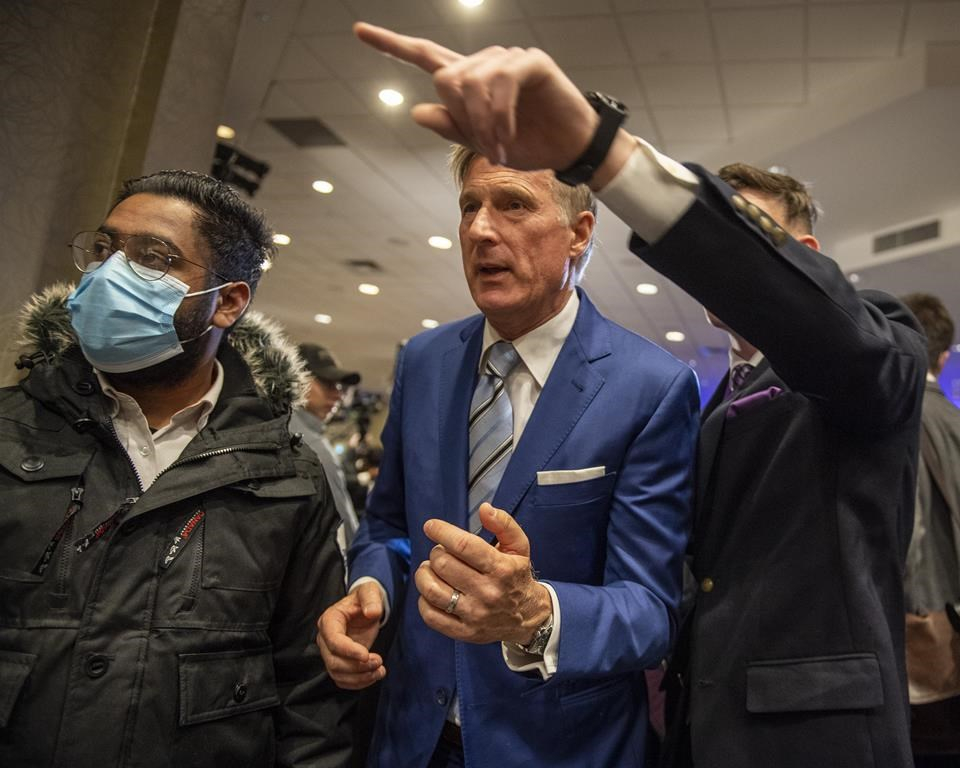Support strong Canadian climate journalism for 2025
Maxime Bernier has lost his defamation fight against a controversial columnist who repeatedly portrayed the People's Party of Canada leader as racist, misogynist and anti-Semitic during the run-up to the 2019 federal election.
His defamation suit against political strategist and pundit Warren Kinsella was tossed out of Ontario Superior Court on Wednesday.
Bernier had argued that his reputation was damaged by Kinsella, whom he accused of acting with malice on behalf of Conservative party operatives who had hired Kinsella's company, Daisy Consulting Group, to dig up dirt on the fledgling People's Party.
But while he said some of Kinsella's publications on social media and in mainstream newspapers were clearly defamatory, Justice Calum MacLeod ruled that Bernier had not proved that the harm to his reputation outweighs the importance of protecting freedom of speech on matters of public interest.
Ontario has adopted legislation meant to discourage so-called SLAPP suits — strategic lawsuits against public participation — that aim to limit freedom of expression.
Under that legislation, a plaintiff must prove that the harm to his or her reputation is such that the public interest in proceeding with a defamation lawsuit outweighs the public interest in protecting free speech. If that onus is not met, the suit must be dismissed.
MacLeod stressed that he was ruling strictly on whether Bernier met that onus, not on the substance of his complaint or on whether he "is or is not a racist or any of the other epithets thrown at him."
To ensure there could be no perception of "the court meddling in politics," MacLeod said he delayed releasing his ruling until after the Sept. 20 federal election, in which Bernier's party ran a distant fifth with just under five per cent of the vote and won no seats.
Bernier, a former Conservative cabinet minister, formed his own party after narrowly losing the Tory leadership in 2017.
The People's party ran in 2019 on a platform that opposed what Bernier called "extreme multiculturalism" and advocated cuts to immigration — positions that were widely condemned as outright racist or, at least, pandering to racists.
MacLeod said Bernier also failed to meet the test that Kinsella had no defence of justification that would have a reasonable chance of success had the defamation suit proceeded.
"This is not a case of 'false news' with no foundation in fact. Mr. Kinsella was basing his comments on actual positions taken by Mr. Bernier and on actual events," MacLeod wrote in his ruling.
Nor was Kinsella alone in concluding that Bernier was racist and xenophobic or pandered to neo-Nazis and white supremacists. Such characterizations of Bernier were "rife" in mainstream media, the judge added.
"Mr. Kinsella may have approached his task with particular caustic enthusiasm but, at worst, Mr. Kinsella's postings can be seen as a drop of vitriol in a sea of criticism."
Bernier had alleged that "dirty tricks" launched by the Conservative Party, including the hiring of Kinsella's Daisy Group, cost him his long-held Beauce seat in Quebec. But MacLeod said there's no evidence to suggest Kinsella's efforts caused that harm, noting that Bernier himself admitted that few of his constituents were likely to have read Kinsella's broadsides, written in English.
In a written statement, Kinsella welcomed the "important" ruling.
"Bernier and his People's Party have lost yet again," he said. "We were always confident the court would dismiss Bernier's action, which was a clumsy attempt to silence dissent and legitimate criticism."
The lawyer for Kinsella and the Daisy Group, David Shiller, called the ruling a victory for "journalists, writers and bloggers."
"It means that those seeking high public office, like Bernier was, cannot use the laws of defamation to try to silence and punish their critics."
Shiller said his clients would be seeking compensation for their legal costs.
Kinsella has separately filed a libel notice against Bernier and the People's Party for alleging that he committed perjury.
During the election campaign earlier this fall, Bernier attracted large crowds with his opposition to vaccine mandates and other public health restrictions aimed at controlling the spread of COVID-19. His supporters were prominent among the angry, profanity-spewing protesters who dogged Prime Justin Trudeau's campaign.
Experts who follow hate groups have said the anti-vaccination fringe has been infiltrated and exploited by white supremacists.
This report by The Canadian Press was first published Nov. 10, 2021.





Comments